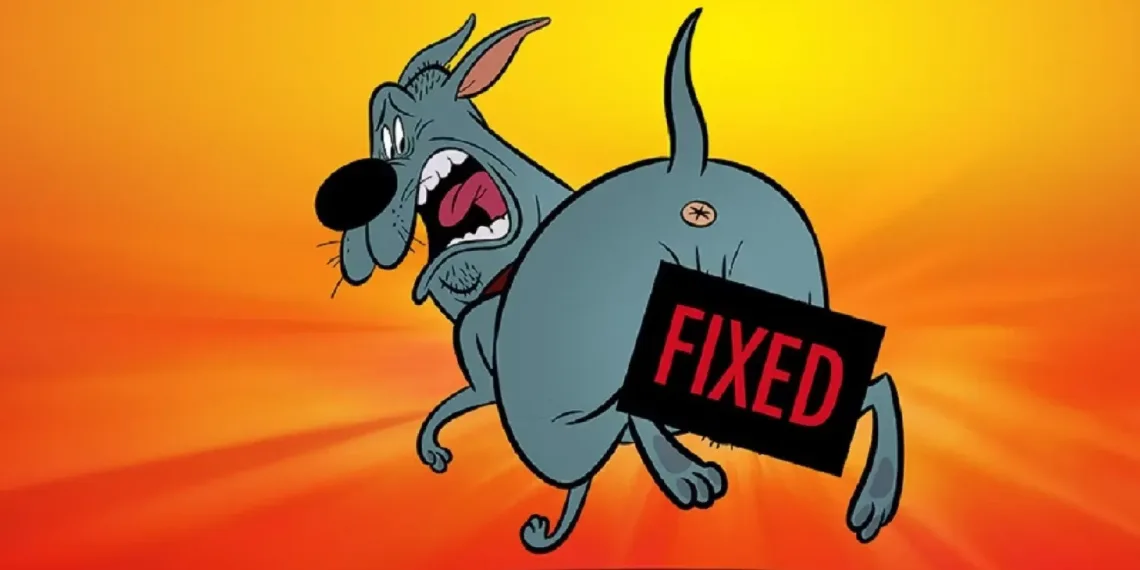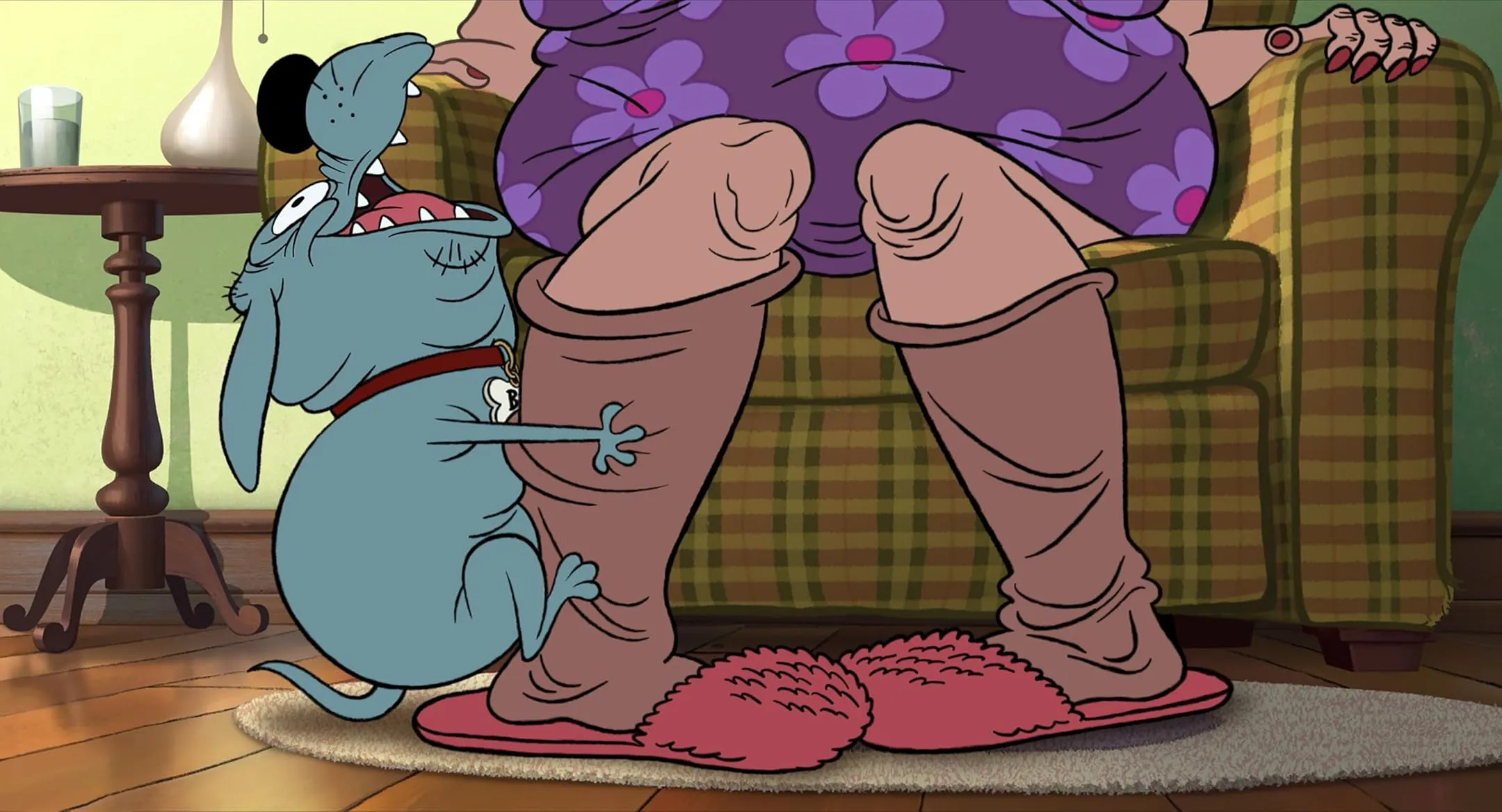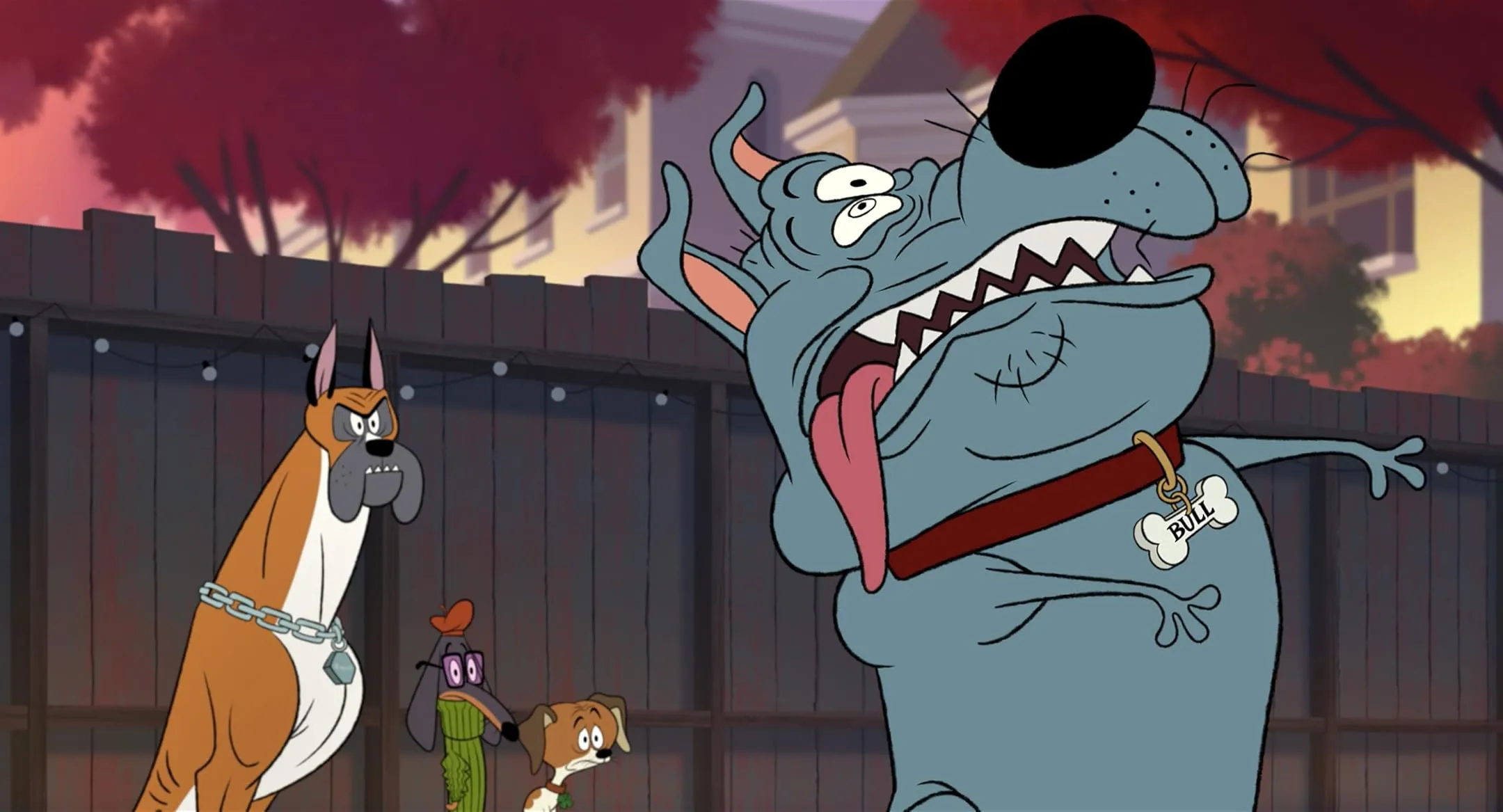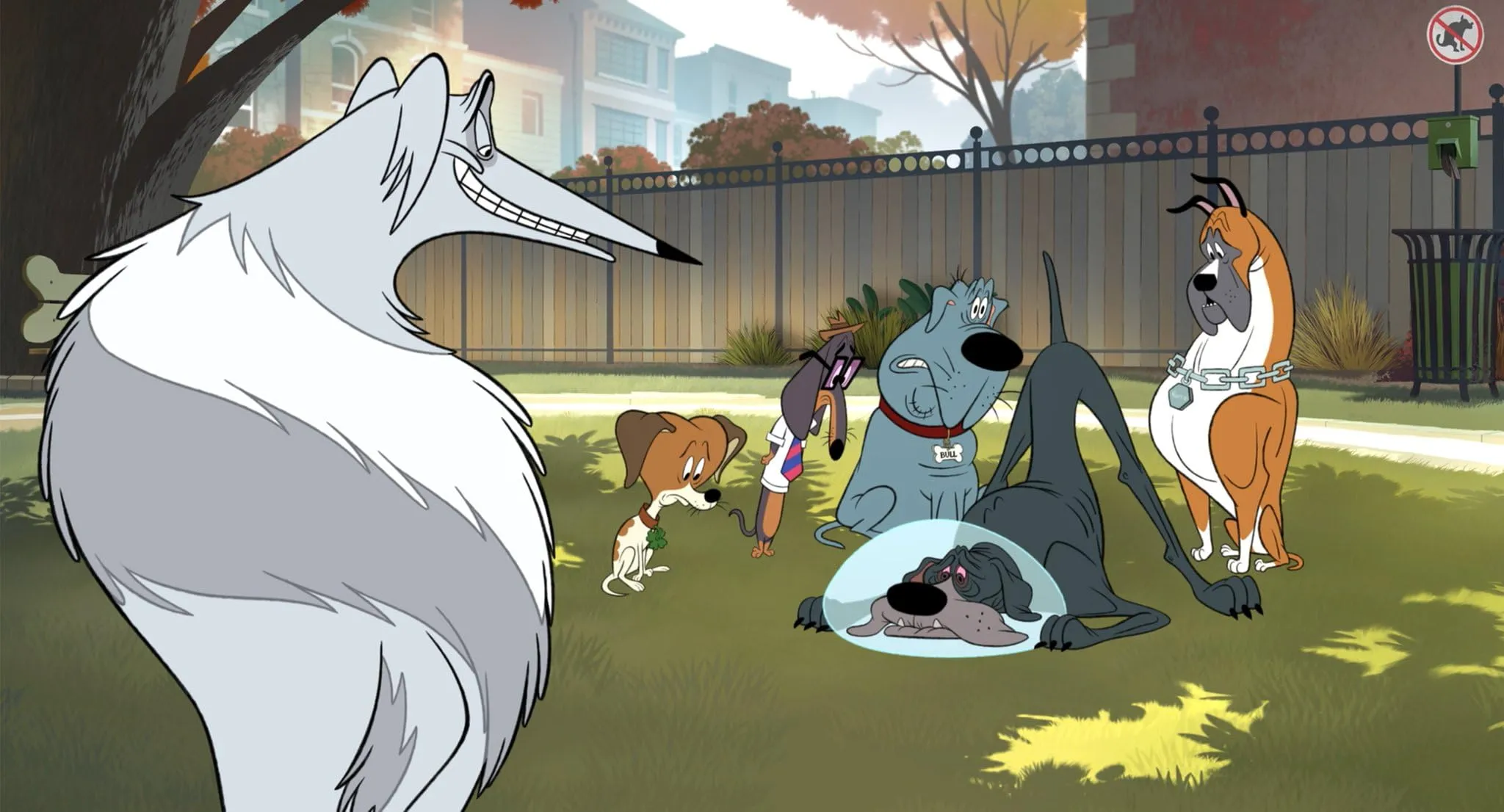Genndy Tartakovsky’s Fixed presents itself as an adult animated comedy, a label that feels profoundly inadequate. The film’s engine is a concept of primal, existential dread: a common mutt named Bull learns his human benefactors intend to have him neutered.
The news precipitates not just fear but a full-blown crisis of self. This is the canine equivalent of waking up to find a pink slip and a guillotine on your pillow. His panic, raw and absolute, becomes the fuel for a frantic, final night of freedom. Bull’s long-standing, across-the-fence adoration for Honey, a pedigreed show dog, suddenly acquires a ticking clock.
The impending procedure transforms puppy love into a desperate biological imperative. This urgency gathers his pack—the performatively tough Rocco, the social-media-addled Fetch, and the perpetually confused Lucky—for a chaotic urban odyssey. They are on a mission to affirm Bull’s identity in the only way they understand before it is surgically removed. It is a quest for meaning, pursued through the basest of instincts.
A Symphony of Anatomical Exaggeration
The film’s visual language is a fascinating act of historical rebellion. Tartakovsky resurrects the anarchic spirit of mid-century animation, with thick, expressive outlines and a violent plasticity that would make Tex Avery blush.
The style is a direct refutation of the sterile perfection of so much contemporary CG work. This is not animation that wants to mimic reality; it wants to distort it to reveal a deeper, messier truth. The characters are in a state of perpetual, frenetic motion, their bodies and faces contorting to match every fleeting impulse. This aesthetic of “carnal cartoonism” is the film’s greatest asset.
The physical humor, from a hyper-violent squirrel chase to the simple absurdity of three dogs stacked in a trench coat, lands with a precision that the script’s verbal jokes sometimes lack. The manic energy is not simply for effect; it is a visual manifestation of the characters’ raw, unfiltered instincts. The animation finds a strange beauty in the grotesque, treating dog anatomy with a kind of loving, graphic fidelity that turns the body itself into the main comedic spectacle.
The Id on a Leash
The film’s humor operates on two distinct channels, one far more successful than the other. The verbal comedy, a barrage of jokes about sex and bodily functions, often feels like a relic from a less thoughtful era of gross-out cinema.
The shock of hearing cartoon dogs use profanity fades, leaving behind gags whose expiration date has long passed. Yet, where the script falters, the characters and their dynamics provide ballast. Bull’s pack is a study in masculine archetypes, rendered as dogs. Rocco, voiced with gusto by Idris Elba, is the aggressive boxer whose machismo masks a deep well of sensitivity.
Fetch is the modern dog, his identity curated by an owner for online approval. And Lucky is the lovable dimwit, operating on a different plane of existence. The voice work is uniformly strong, with Kathryn Hahn giving Honey a charismatic charm that elevates her beyond a simple love interest. The genuine chemistry between these friends provides a necessary anchor, making their frantic journey feel like a shared struggle rather than a mere sequence of lewd events.
Sentimentalism in the Abattoir
Just when the relentless crudeness threatens to become exhausting, the film reveals an unexpected emotional core. The story is not merely a defense of hedonism; it is an exploration of the anxieties that underpin it.
Beneath the layers of profanity and scatology are surprisingly lucid examinations of friendship, insecurity, and the messy business of maturation. The bond between Bull and his friends feels authentic, their ribbing laced with a familiar warmth. The film’s most startling maneuver is its handling of the romance between Bull and Honey.
What begins as a lustful objective evolves into a relationship of genuine sweetness and sincere communication. It suggests that the path to emotional maturity is not found by suppressing one’s base instincts, but by going through them.
In its own chaotic way, the film argues that vulnerability is a strength, not a weakness. Bull’s frantic quest to preserve his physical manhood ironically leads him to discover a more durable sense of self, one that exists independent of anatomy.
Fixed debuted at the Annecy International Animation Film Festival on June 11, 2025, and will be released on Netflix on August 13, 2025.
Full Credits
Director: Genndy Tartakovsky
Writers: Genndy Tartakovsky, Jon Vitti (screenplay); Story by Genndy Tartakovsky, Jon Vitti, Steve Greenberg, Rich Lufrano
Producers and Executive Producers: Michelle Murdocca, Genndy Tartakovsky
Cast: Adam DeVine, Idris Elba, Kathryn Hahn, Fred Armisen, Bobby Moynihan, Beck Bennett, River Gallo, Michelle Buteau
Editors: Mark Yeager
Composer: Tyler Bates, Joanne Higginbottom
The Review
Fixed
Fixed is a study in contradictions. It wraps a surprisingly sincere story about identity and connection within the most unapologetically crude packaging imaginable. While its verbal humor feels like a relic, the film is saved by its visual wit. The hyper-expressive, throwback 2D animation is a constant delight, turning physical comedy into an art form. It is a messy, audacious, and often thoughtful piece of work that succeeds because of its willingness to mix the profane with the profound.
PROS
- Visually striking 2D animation with incredible energy.
- Genuinely heartfelt story about friendship and vulnerability.
- Excellent physical comedy and strong character dynamics.
- Standout voice performances from the entire cast.
CONS
- Verbal jokes and dialogue often feel dated.
- The relentless raunchiness may be tiresome for some.
- The shock value of the premise diminishes over time.



















































